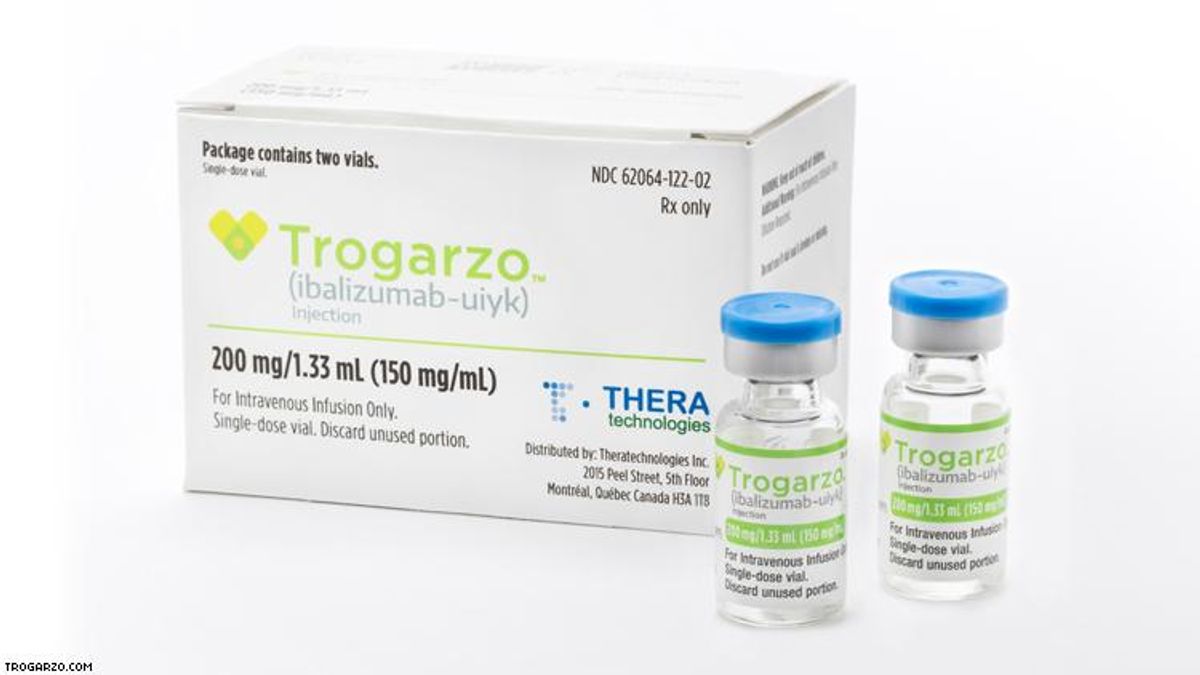Multidrug-resistant HIV doesn’t have to be a death sentence anymore, and new therapies are helping to significantly improve the quality of life. Whether drug resistance is the result of skipped daily pills or from superinfection, the list of available therapies needs improvement.
The U.S. Food and Drug Administration (FDA) granted approval of Trogarzo (ibalizumab-uiyk) injection according to a March 6 press release. As we've reported in the past, in combination with other anti-retroviral therapy (ARTs), Trogarzo by Theratechnologies is for people living with multidrug-resistant HIV-1 infection and who are failing their current antiretroviral regimen.
Edwin DeJesus, M.D. is Medical Director for the Orlando Immunology Center and a Trogarzo clinical trial investigator.
Dr. DeJesus and his team have been waiting for this day for over ten years, and the announcement couldn’t arrive any sooner. “It has been more than a decade since ibalizumab moved to Phase 2b development,” he told Plus magazine. “Early on, we knew the potential of this agent; However, I believe this long developmental process has served everyone well, especially in our ability to understand where this drug, which is the first drug to be administered intravenously for the treatment of HIV-1 infection, can best fit in our armamentarium of treatments available to our patients. Although we have waited a long time, ibalizumab now becomes available perhaps at a point in which it is most needed.”
Trogarzo is being hailed as the first HIV therapy with a new mechanism of action approved in 10 years and it’s proven to be effective in difficult-to-treat patients with limited options. “By ‘mechanism of action,’” DeJesus clarified, “we mean the description in which different drugs work against HIV; usually at a different part of the HIV life-cycle, or interfering with different steps or enzymes. For example, we have many ‘protease inhibitors’ and all of them work with the same mechanism of action. They all inhibit the same enzyme, although some of them are able to do that more effectively than others. Having a different mechanism of action essentially ensures that any other anti-HIV medications that a patient may have taken in the past would likely not affect the activity of an agent with a new mechanism of action; and make the possibility of ‘cross-resistant’ to this new agent essentially extremely unlikely.”
Trogarzo not only is the first ARV medication with a new mechanism of action FDA approved in the past decade, DeJesus explained, but actually it is the first antiretroviral ever approved with this novel mechanism of action. Novel means that there is no other FDA-approved ARV agent that has the same mechanism of action.
HIV’s unique ability to mutate makes drug resistance both a serious and widespread problem. Once people living with HIV have repeatedly failed with multiple medications, time after time, things can start to get tricky.
“We are at a crossroads,” DeJesus reiterated, “where we have developed great ARV therapies to treat our newly diagnosed HIV patients, and those who have failed, or poorly tolerated their second or third ARV regimen. However, anti-HIV therapies to offer our patients that have gone beyond that point are very limited. For patients with no treatment options to build a potent new ARV regimen, this multidrug resistance can become a life or death situation. But even before that point is reached, this multi-drug resistance, and the inability to control the HIV infection, can significantly reduce patient’s quality of life and promote the development of significant morbidities; something that we also need to avoid.”
An estimated 20,000+ patients in the United States deal with multidrug resistance virus and are unable to control their infections. “The availability of Ibalizumab, to be combined with other ARVs,” DeJesus warned, “may potentially make the difference between a new treatment success or treatment failure for a portion of those with multidrug resistance virus.”
DeJesus told us that Theratechnologies is working very hard to have the drug available within six weeks after approval.
















































































